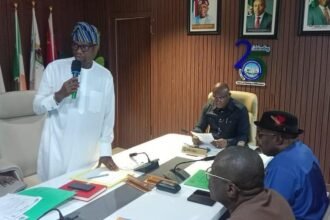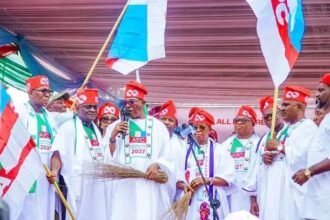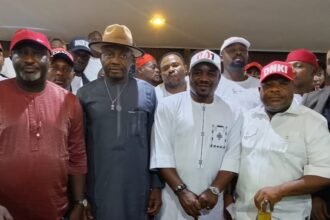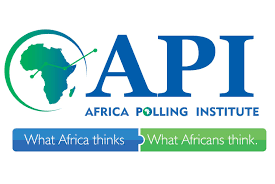By Nneka Acholonu Egbuna, Development and Humanitarian Communications Expert
Nigerians currently face hardships and tough economic realities; despite this, many Nigerians still love their country and are willing to make sacrifices to contribute to its betterment. This was recently observed in the 2025 social cohesion survey conducted by the Africa Polling Institute (API), which gauged citizens’ perceptions of unity and polarization in the country. A total of 5,465 people participated in the national survey, with data collected throughout the country that spanned various demographics, including gender, marital status, religious affiliation, age, ethnicity, and educational levels.
The report observes that peace and security are eroding in the country, and the situation is worse than it has ever been. This is evident in respondents’ assessment of the government’s peace-building efforts, which require the Federal government to review its peace-building strategies to effectively resolve the various conflicts affecting the country. The survey reveals that politics is considered the leading cause of the conflicts and insecurity in Nigeria, followed by ethnic and tribal differences, and religious differences, topping the causes of conflict in the country.
It is significant to note, as the survey exposes, that the ‘selfish ambition’ of politicians remains the major cause of political tensions and crises. This selfish ambition has led to the scramble for power, as well as control over the country’s vast reserve of natural resources, and competition for public assets.Zeroing in on natural resources, they are important drivers of development, but they can also spark conflict, hinder social cohesion, and impede national progress when mismanaged. Nigerians overwhelmingly perceive the governance of natural resources as poor, according to 69% of respondents in the survey. Only 25% viewed it as average, and a mere 6% reported it to be good. This marks a significant decline in public perception compared to API’s 2022 survey, indicating a worsening state of natural resource governance in the country.
There is a low level of trust in the Federal government. According to the 2025 survey, a whopping 70% believe the government mismanages revenue from its natural resources. Nigerians are deeply concerned about the direct connection between natural resource mismanagement and corruption. Half of all respondents (50%) believe that the poor management of natural resources will lead to a further increase in corruption nationwide. In contrast, 28% disagreed with this sentiment, while 22% remained indifferent. Similarly, the possibility of natural resources igniting conflicts is a significant concern; as 50% of respondents agreed that the availability of natural resources can trigger conflicts within Nigeria, while 22% disagreed with this assessment.
API also observes that the human rights abuses and violations in the country have worsened and that most Nigerians are very unlikely to report human rights abuses to the Police. A striking 89% of respondents gave the government’s peace-building efforts a very poor rating, while 64% expressed confidence that local initiatives could effectively address Nigeria’s recurring conflicts.
Interestingly, 81% of the respondents are eager to be involved in peace-building initiatives. Accordingly, 68% indicated a willingness to contribute selflessly to the nation’s shared progress. The survey further reveals that 79% of respondents are willing to cooperate with people from other ethnic groups to promote a more united Nigeria. Seventy-six percent expressed a willingness to participate in the political process to help build a better nation for all. This represents an 11% increase in the willingness of Nigerians between 2022 and 2025, and highlights a notable shift in attitudes. In contrast, 12% were unwilling to participate, while another 12% remained indifferent.
In the midst of widespread insecurity and persistent conflicts across the country, it is clear that the government must intensify its efforts to address these issues. Despite enduring economic hardship and daily struggles, many Nigerians remain deeply committed to the nation and are willing to make personal sacrifices for its progress. This enduring resilience and patriotism present a vital opportunity for governments at all levels—federal, state, and local—to work towards rebuilding trust, fostering stronger relationships with citizens, and enhancing governance and effective public service delivery.
The survey places Nigeria’s social cohesion index at 48%, an indication that it falls below the required standards. It fingers poverty, inequality, social exclusion, and insecurity as situations that lead to civil unrest, adding that while Nigeria has the capacity to improve the welfare of its citizens, it has not shown full commitment yet. It recommends that governments at the Federal, state, and local levels should revisit and revitalize their policies, processes, institutions, and laws, and carry the people along so that they have the feeling of being part of the system, not excluded. With the feeling of working towards a common goal, the citizens will, in turn, be able to contribute meaningfully towards building a socially cohesive nation.
Here’s a link to the full report.





